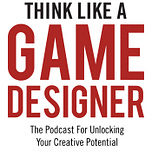About Liz Spain
Liz Spain entered the game industry through the unusual path of fashion and costume design. Liz tells the remarkable story of designing, producing, and successfully Kickstarting her first game: Incredible Expeditions: Quest for Atlantis. She explains how she was able to raise money and awareness for her first game by attending events that worked thematically with her project's aesthetic. We also speak in-depth about the psychology of game design. Happy Gaming!
Show Notes:
“When I’m approaching new projects I try to think about: What is the emotional experience I want for people sitting at the table?” (12:35)
There are a lot of ways to design a game. At Stone Blade, we tend toward mechanics first. Liz, on the other hand, tends toward aesthetic and feel early in her process. Wherever you start, it’s the emotional experience of the players that matters most. In this section, we talk about finding that emotion by starting with the aesthetic first.
“You have to be ready at any moment to improvise tons of content.” (23:54)
One type of game that we haven’t dug into at all on this podcast is event design, like escape rooms, or LARPs. Liz talks about her strategies for creating and running these complex and intricate games, and there’s a lot more to consider than you might think! She discusses some of her improvisational techniques that make the game feel seamless when the players inevitably go off the rails.
“You can add things to an experience to encourage behavior, or you can take away things to encourage behavior, or you can add things to discourage behavior, or you can remove things to discourage the behavior.” (41:43)
Not surprisingly, there’s a lot of psychology that goes into both game design and gameplay. In this section, we go deep talking about the psychology involved in games and life in general. We discuss how these played a part in the design of Ascension, and the games Liz develops. Here’s a significant bit of information for you up-and-coming designers:
“Almost everyone I know in-game design didn’t go to school for it.” (49:49)
Liz speaks about how being open to change and feedback will help you become a capable designer, who’d work well on a team. Practicing non-attachment when it comes to your initial designs is a good sign for game companies that you’re able to be adaptable – which is one of the most critical qualities in the job.














Share this post